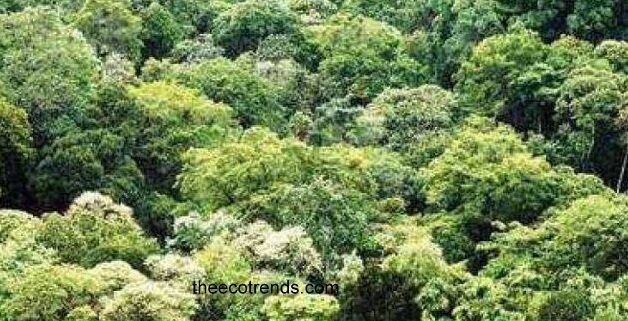Ecological Niche Dictionary defines the term Niche as a comfortable or suitable position in the life of a living being or a role taken by a type of organism within its community. In other words, an ecological niche is the role and position a species has in its environment, for example, how it meets its food and shelter needs, survives, and reproduces. A species’ niche includes all of its interactions with its environment’s biotic and abiotic factors. It is advantageous for living beings to occupy a unique niche in an ecosystem because it reduces the amount of competition for resources that species will encounter. Different parts like plants, animals, microbes, and non-living things, as well as climatic factors like temperature, humidity, and air, play different roles in an ecosystem. The role a living being plays in an ecosystem is called its ecological niche.
Types of Ecological Niche
Ecological niches can be categorized into Fundamental or Hypothetical, and Realized or Actual. A fundamental or hypothetical niche is called the total range of physical, chemical, and biological factors that can be utilized or survived by a species if no other species are affecting it. On the other hand, the portion of a species’ fundamental niche is called the Realized or Actual niche. Species can never live under “perfect” conditions. Hence, it is an acceptable ecological sum of existing conditions called Realized Niche. Realized niches are usually smaller than fundamental niches since competitive interactions exclude species from at least some conditions under which they would otherwise grow. Species may occupy different realized niches in various locations if some constraint, such as a specific predator, is present in one area but not another.
Ecological Niche and Habitat
Environment Niche and Habitat are closely related terms, but there is not a clear distinction between the two. A habitat denotes the physical place where an organism lives. A niche reflects the behaviour of an organism and any external variables like temperature or wind. The habitat is focused more on the location or place in the environment where the organisms live. The resources available to each species, whether physical or biological, are very important in this study or aspect.
The niche is the study focusing more on the organism’s response to the environment’s limited resources and competitors. On the other hand, the habitat is more focused on where the organisms live and how their environment affects them. In a nutshell, niche is the study of how an organism makes a living in the ecological community it belongs to, while habitat is the study of a place or area where an organism lives and gives birth to individuals. A niche refers to a survival strategy that involves a place to live, food to eat, or, in the case of green plants- food to create, and any other unique aspect of a given organism that allows it to survive. A habitat is all aspects of the area, including the biotic and abiotic components in which an organism lives. On the other hand, an ecological niche includes all the factors, like food, abiotic conditions, and behaviour etc., that a species needs to survive, stay healthy, and reproduce.




